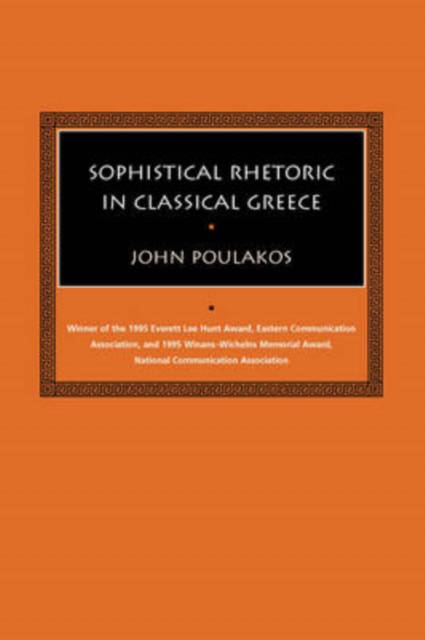
- Afhalen na 1 uur in een winkel met voorraad
- In januari gratis thuislevering in België
- Ruim aanbod met 7 miljoen producten
- Afhalen na 1 uur in een winkel met voorraad
- In januari gratis thuislevering in België
- Ruim aanbod met 7 miljoen producten
Omschrijving
An introduction to the rhetorical tradition of sophistical dialectics in antiquity
In Sophistical Rhetoric in Classical Greece, John Poulakos offers a new conceptualization of sophistry, explaining its direction and shape as well as the reasons why Plato, Isocrates, and Aristotle found it objectionable. Poulakos argues that a proper understanding of sophistical rhetoric requires a grasp of three cultural dynamics of the fifth century B.C.: the logic of circumstances, the ethic of competition, and the aesthetic of exhibition. Traced to such phenomena as everyday practices, athletic contests, and dramatic performances, these dynamics set the stage for the role of sophistical rhetoric in Hellenic culture and explain why sophistry has traditionally been understood as inconsistent, agonistic, and ostentatious.
In his discussion of ancient responses to sophistical rhetoric, Poulakos observes that Plato, Isocrates, and Aristotle found sophistry morally reprehensible, politically useless, and theoretically incoherent. At the same time, they produced their own version of rhetoric that advocated ethical integrity, political unification, and theoretical coherence. Poulakos explains that these responses and alternative versions were motivated by a search for solutions to such historical problems as moral uncertainty, political instability, and social disorder. Poulakos concludes that sophistical rhetoric was as necessary in its day as its Platonic, Isocratean, and Aristotelian counterparts were in theirs.
Specificaties
Betrokkenen
- Auteur(s):
- Uitgeverij:
Inhoud
- Aantal bladzijden:
- 240
- Taal:
- Engels
- Reeks:
Eigenschappen
- Productcode (EAN):
- 9781570037924
- Verschijningsdatum:
- 29/10/2008
- Uitvoering:
- Paperback
- Formaat:
- Trade paperback (VS)
- Afmetingen:
- 152 mm x 229 mm
- Gewicht:
- 326 g

Alleen bij Standaard Boekhandel
Beoordelingen
We publiceren alleen reviews die voldoen aan de voorwaarden voor reviews. Bekijk onze voorwaarden voor reviews.









